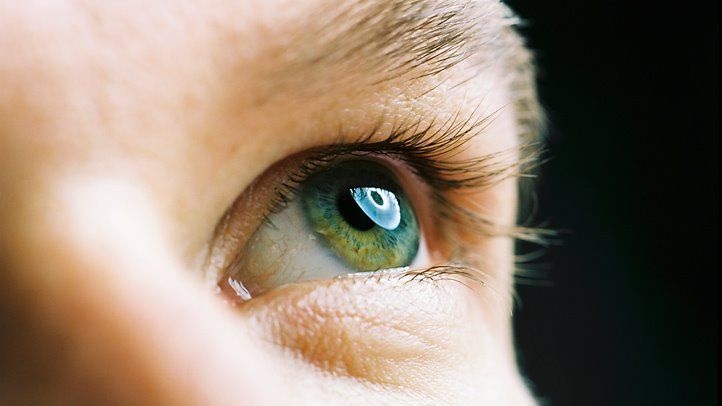Eyes are not immune to the effects of aging. Some of the age-related changes in the eyes are bothersome but not harmful; for example, it may become harder to focus on close objects, and eyelashes may thin slightly. On the other hand, other alterations can be major eye issues that endanger vision.
The ability of the eyes to stay lubricated begins to deteriorate as they age, which can cause itchy, sticky, dry, or gritty eyes. The eye’s lens might grow less elastic with time. Night vision may also begin to deteriorate, posing a hazard when driving at night. Cataracts, macular degeneration, and diabetic retinopathy, on the other hand, can deprive you of your sight.
How do you tell if an eye condition is only an annoyance or the beginning of something more serious? The following indications and symptoms should prompt you to contact your doctor. Early detection of major eye disorders can help you keep your eyesight. Even non-vision-threatening eye issues can be addressed to keep your eyes as comfortable as possible and your vision as crisp as possible.
Double Vision
Double vision is a severe issue that should be addressed right away, whether it occurs sporadically and randomly or all the time. It is characterized as a person perceiving two images either next to or on top of each other. It can quickly cause issues with balance, reading, and daily activities.
It is monocular if it occurs in one eye but binocular if it occurs in both. It can be caused by various underlying diseases, ranging from nerve and muscle injury to illnesses that weaken the eye muscles. It can also happen as a result of drug or alcohol use. If it persists in the absence of alcohol or drugs, it is a symptom that must be evaluated and addressed as soon as possible.
Scratchy Pain
A foreign particle, such as sand or a minute hair, is frequently the source of a scratching irritation on the eye’s surface. It may also be a symptom of dry eyes, a condition in which your eyes are inadequately moisturized, and your eyelids irritate the surface of your cornea with each blink.
This may go away when the particle is removed from the eye, but if it persists, it could be a sign of a disease that requires treatment. So please don’t dismiss it! Your doctor can detect the issue and treat it by addressing the underlying ailment causing it.
Eye Pain
Pain in the eyes is a common symptom, and it is distinguished by throbbing, stabbing, or shooting signs in the eye. It can arise due to trauma, irritation produced by a foreign item (something is trapped in your eye), infection, or some serious underlying problem.
You shouldn’t feel any pain in your eye. If it seldom occurs in conjunction with other symptoms, such as a headache, it may be an acute problem that does not signal an underlying illness. However, if you experience it regularly, you should see an eye doctor since it could indicate anything from inflammation to nerve damage.
Disturbed Peripheral Vision
Peripheral vision refers to your capacity to see out of the corner of your eye or in areas where you are not focusing if you’re having trouble seeing things around you, whether on one side or both, it could be due to glaucoma-related optic nerve damage.
Eye occlusions, which prevent the usual flow of blood to the optic nerve and other eye components, can also cause this problem, so if you have problems with your peripheral vision, you should see a doctor right once.
Spotters or Floaters
Everyone experiences floaters or spots at some point in their lives, and it is most common when looking at bright lights. However, it is more persistent, frequent, and extreme in certain persons. Floaters are miniature objects that move around in your range of vision and are frequently caused by aging. The vitreous fluid in your eyes grows more liquid as you age, and your eyes gradually degenerate. As time passes, the tiny fibers in that fluid begin to clump together, casting shadows on the retina.
If you have too many, it could be a sign of an underlying disease such as inflammation in the back of the eye, a ruptured retina, or bleeding. If you observe more floaters than usual, or if you detect flashes of light, or if you notice darkness or dark spots in your vision, you should consult a doctor.
Swelling
Inflammation in the eye can create symptoms similar to those discussed above, but swelling around the eye can be caused by various other issues that your eye specialist can correctly diagnose. Swelling may occur due to allergies, fluid retention, or acute eye infections that, if left untreated, can cause lasting damage.
Eyelid swelling can also suggest major health conditions such as orbital cellulitis, ocular herpes, or even Graves’ disease, all of which can permanently affect your vision.
Prevention of Eye Diseases
Eye disorders can take various forms, and the only way to adequately tackle them is to have a trained, experienced eye specialist on your side. Even those who do not wear glasses and have never had refractive disorders are susceptible to eye-health complications. Even if you don’t believe you need to see an eye doctor, frequent check-ups can provide peace and allow you to spot possible problems early.
If you have any of the symptoms listed above, you should consult a doctor. Some symptoms may be acute and only arise as due to a migraine or headache, but if they do not go away, if they are persistent and painful, see a doctor.
Book an appointment now to answer all your queries. You can book an appointment with the top Eye Specialists in Lahore through Marham by calling Marham helpline: 0311-1222398 or by online booking facility through the website or Marham mobile app.
Frequently Asked Questions(FAQs)
1- Should I be concerned about my double vision?
Long-term or recurring double vision should prompt an examination with your eye doctor to rule out any severe underlying conditions. You have double vision when you stare at one object yet perceive two pictures, also known as diplopia.
2- What are common eye diseases in children?
Children’s common eye problems include strabismus, chalazion, amblyopia, and refractive error.
3- When should I be concerned about eye problems?
Consult your optometrist if you notice any sudden or major changes in your vision. Macular degeneration caused by aging is a common eye condition that causes impaired or distorted vision (Astigmatism).













